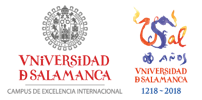Poetry and Truth
Abstract
The poetic language responds to needs, rules and circumstances very different from those of ordinary everyday language or to technical languages, such as logic and science; however, notions of truth and falsehood can also be established in poetry. According to Heidegger, the poetic truth rests on the ability of poetry to reveal the presence that things have for themselves, regardless of any use that our daily practice can give them. This paper tests the previous assumption, and reflects on the type of truth that poetry can reveal, and which is, instead, beyond the reach of other types of languages.
References
Brooks, Cleanth (1968). The Well Wrought Urn: Studies in the Structure of Poetry. Nueva York: Harcourt.
Cavalcanti, Guido (2009). The Selected Poetry of Guido Cavalcanti: A Critical English Edition, ed. Simon West. Leicester: Troubador.
Eliot, Thomas S. (1986). The Use of Poetry and the Use of Criticism: Studies in the Relation of Criticism to Poetry in England. Cambridge, MA: Harvard University Press.
Eliot, Thomas S. (1991) Collected Poems, 1909–1962. Franklin Center, PA: Harcourt Brace Jovanovich.
Elliott, Ray K. (1967). «Poetry and Truth», Analysis, 27/3: pp.77–85
Hardy, Thomas (1998). «When Dead». En Selected Poems, ed. Robert Mezey. Nueva York: Penguin Books, 1998, p. 170
Heidegger, Martin (2005). «El origen de la obra de arte», en Caminos de bosque, ed. y trad. de Helena Cortés y Arturo Leyte, Alianza Editorial, p.49 Versión original: «Der Ursprung des Kunstwerkes», 1935.
Koethe, John (2009) «Poetry and Truth», Midwest Studies in Philosophy, 33 (2009).
lamarque, Peter (2009). «Poetry and Abstract Thought», Midwest Studies in Philosophy, 33: pp.37–52.
Rilke, Rainer Maria (2009). «Novena Elegía», The Poetry of Rilke, Edición bilingüe, tr. Edward Snow, 1era edn. Nueva York: North Point Press.
Verlaine, Paul y kirchwey, Karl (2011). Poems Under Saturn: Poèmes Saturniens, tr. Karl Kirchwey. Princeton: Princeton University Press.
Wagner, Richard (1887-8). «Die Religion und die Kunst», en Gesammelte Schriften und Dichtungen, 2da edición, 10 vols. Leipzig, 1887–8.
Yeats, William B. (2003). The Tower: A Facsimile Edition. New York: Scribner.
Copyright (c) 2019 Disputatio. Philosophical Research Bulletin

This work is licensed under a Creative Commons Attribution-NonCommercial-NoDerivatives 4.0 International License.



